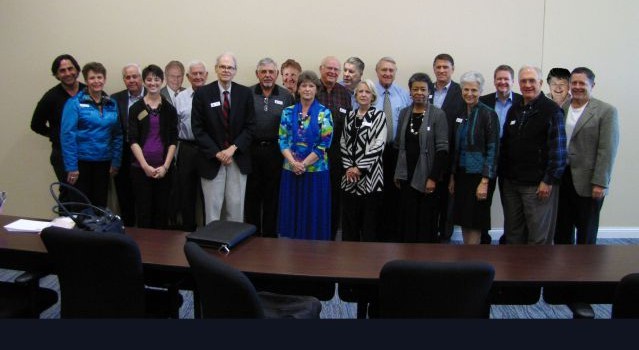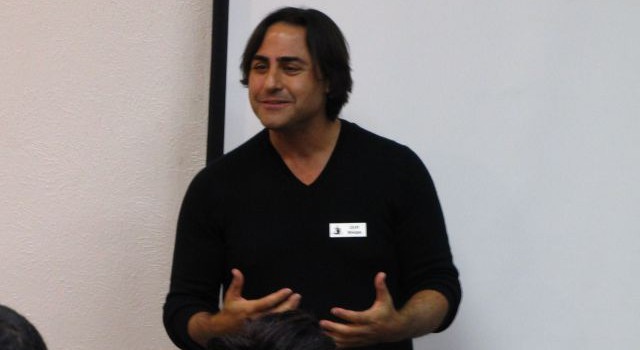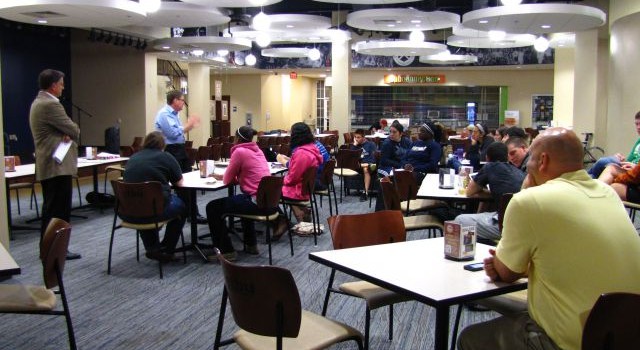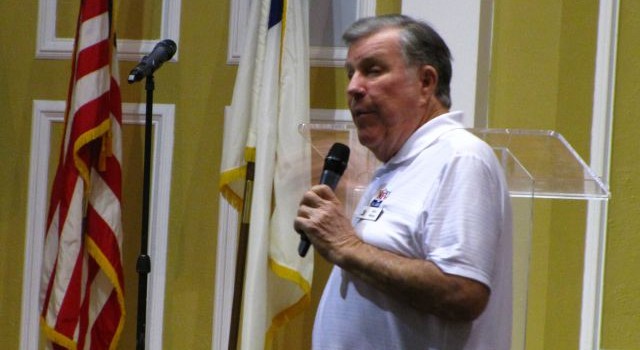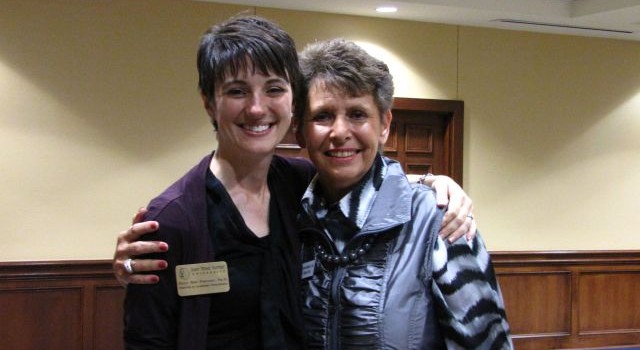

Hello, World
 “I didn’t think there was anything outside of Longview, Hallsville, and Marshall. Then I went to China.” The student told of his overseas study adventure as part of the chapel service. His naturally worn cowboy attire told me he was indeed a native Texan. The first sentence stayed with me. What is opening my world right now? What amazes me and creates a sense of awe?
“I didn’t think there was anything outside of Longview, Hallsville, and Marshall. Then I went to China.” The student told of his overseas study adventure as part of the chapel service. His naturally worn cowboy attire told me he was indeed a native Texan. The first sentence stayed with me. What is opening my world right now? What amazes me and creates a sense of awe?
I thought of another young man from Appalachian America who left home for the first time to spend a semester at Disney World. He returned to Kentucky with a deeper appreciation for his strong roots and his unfurled wings.
In college my parents bought a ticket for a friend to accompany me to North Carolina. It was her first plane trip. Her emotional response as we crossed the country touched me. That trip began a lifetime of discovery for her.
We go to Christian colleges and universities to “stretch and bless the next generation of leaders… to the glory of God.” We leave stretched and blessed. Their world is full of hope and promise. Their world is unhindered by geographical boundaries. Their energy for change is contagious.
Reduced options are one of the symptoms of aging. Our worlds get smaller; our walls grow higher; our healthy restlessness diminishes. I may never challenge the Great Wall of China again but new roads lie ahead. I am not ready to call it quits. I am still eager to wake up each morning with, “Hello, world, where are we going today?”
Prayer Network
by Brenda A. Smith, BWFLI.com, BreakfastWithFred.com
Hunter Baker in his essay on higher education’s role in a civil society said: “…Christians are not free to live without hope.”
The secularization of America is felt in Christian higher education. The stress to closet the Cross is on the move. Do we give up? NO! As you pray this month for our Christian colleges and universities, go before the throne with hope and expectation. God will never be without a witness.
Across the country men and women are being prepared to lead with their spiritual armor firmly in place. We are standing in the gap for them. Thank you for partnering with us to pray earnestly.
From an Entitlement Mindset to an Eternal Perspective, Psalm 73
by Bob Deffinbaugh, Bible.org, BWFLI.com

The psalmist (Asaph) had a problem. He expected to be showered with God’s temporal and material blessings if he lived up to a certain standard. God failed to fulfil his expectations. Worse yet, God seemed to be blessing the wicked, rather than the righteous. Something was desperately wrong – and it surely was, but not with God. Asaph had to confess that he had an entitlement mindset. In his mind, God owed him certain blessings and He didn’t pay up. And all the while he had to watch those wicked sinners, who deserved God’s wrath, basking in earthly bliss while boasting in their sin.
But then Asaph acknowledges that the problem was not with God, it was with him. Asaph’s mindset changed when he “came to the sanctuary of God” (73:16). It was from here that he gained an eternal perspective. The prosperity of the wicked was short-lived, and rather than draw them to God it emboldened their rebellion against God. Asaph, on the other hand, realized that God was near to Him in his adversity, and beyond this, he would be with God for all eternity (73:23-24). He had the best of both worlds because the nearness of God, not material possessions and a life of ease, was his good (73:28).
We live in an age of entitlement. The “good” we often pursue is not good at all. We expect certain material benefits and we are angry with God when we don’t get them. More and more godliness is resisted and opposed. Adversity may well become the norm for believers. Let us pray first for ourselves, that we may see life from an eternal perspective. Pray that we may sense God’s presence with us now – in our sufferings – and for all eternity.
And let us pray for our college students, that they may also see their circumstances from an eternal perspective. Eternity may seem distant, and be obscured by the fog of earthly pursuits and prosperity. Pray that through Bible study, prayer, meditation, and fellowship with other believers young collegians may seek to experience God’s nearness as their temporal and eternal good. And pray that we may manifest this eternal perspective as we live out our lives in relationships with this generation. As Asaph said, if he had failed, his failure would have impacted an entire generation (73:15).
Sign up for the monthly Prayer Network newsletter to be delivered to your email on the first Monday of each month by clicking here.
Move To Do
 Weekly Thought – February 10, 2026
Weekly Thought – February 10, 2026
Fred took serious questions seriously. A young executive wrote Fred asking, “Can I really be a Christian and succeed in business?” Fred answered with a 39 page, typed letter. Wouldn’t it be interesting to know what decisions this young man made in the 36 years since he sought Fred’s counsel?
Ron Glosser’s book, The Genealogy of Friendship, explores a lifetime of stretching experiences. His chapter on Fred shares insights and personal stories.
Move To Do
Make results your measure for activity. A friend hung these words prominently on his office wall: “Results is the only excuse for activity.” It sounds obvious, but surprisingly few people are really results oriented. Most are satisfied with activity and best effort. They forget there are no medals for “best effort.”
Results count, not activity.
The best way to stay results oriented is to keep asking “What am I really trying to accomplish?” Those who tell you how hard they work, how many miles they travel, how tough the job is, and expect appreciation for activity alone are not results oriented.
One of my more caustic friends listened to a young executive go on and on about how hard the job was and how tired he was. My friend interrupted, “Please show me the baby, don’t tell me about the labor pains.” I immediately adopted this phrase. Activity and effort are necessary, but rewards are awarded for results.
As a young man at General Shoe Corporation, I was given the task of creating a summary for the military manning table. (This was during the Second World War). I accepted this assignment from the President with great fervor, staying up nights, creating a magnificent chart with hand-lettered categories, and neatly drawn boxes. I could hardly wait to dramatically present my blood, sweat, and tears to Maxey Jarman. Did he applaud me? No, he took one look, and drew a big red line from one corner to the other, making a giant X. “Mr. Jarman, I was up til three AM working on that!” To that he answered, “I’m sorry to hear you say that because I really believe you could have done a lot better in a lot less time.”
Many today would use that as a case study for poor employer/employee relations. But I always felt he taught me more graphically to think of results over effort better than any other experience in my life.
To this day I still begin each day asking myself, “What are you really trying to do today?” And I remind myself that results are the only excuse for activity.
This week consider: 1) How do I keep focused on results? 2) Who models this for me? 3) Where can I apply this right away?
Words of Wisdom: “Activity and effort are necessary, but rewards are awarded for results.”
Wisdom from the Word: “In the same way, the promise that I make does not return to me, having accomplished nothing.No, it is realized as I desire and is fulfilled as I intend.” (Isaiah 55:11 NET Bible)

